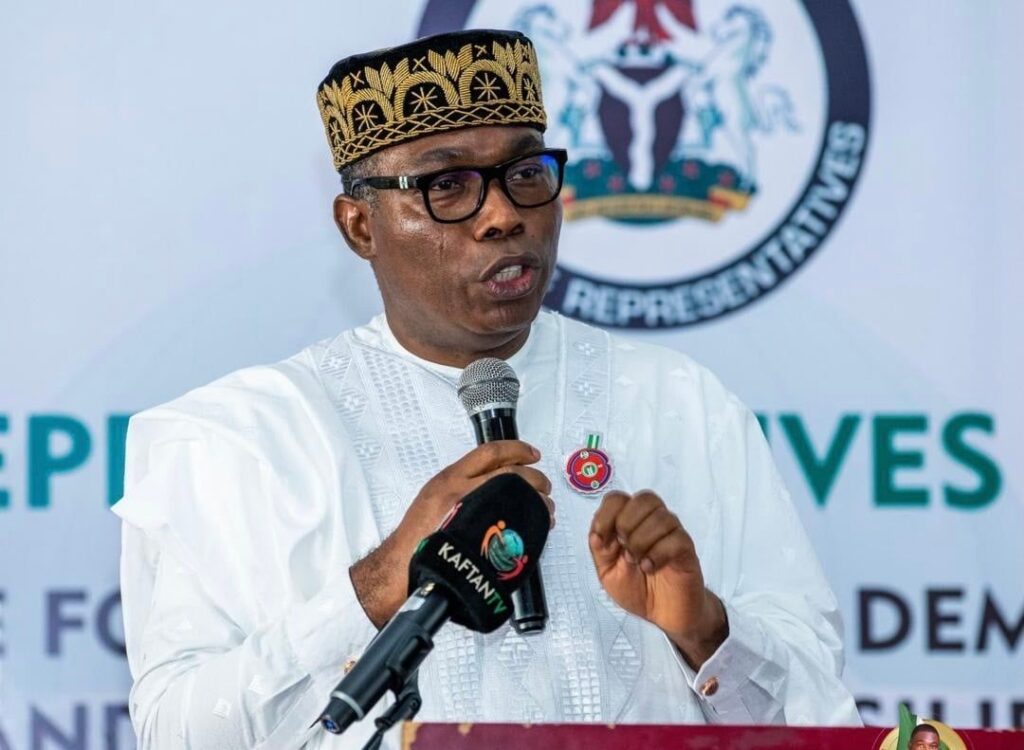Chief Adewole Adebayo, the Social Democratic Party’s presidential candidate in 2023, has dismissed the Federal Government’s claim of sovereignty in response to United States President, Donald Trump’s warning over alleged killings of Christians in Nigeria.
President Trump recently classified Nigeria as a “Country of Particular Concern” over allegations of genocide against Christians and warned that the United States could act if the killings did not stop. The Nigerian government criticised the move, saying any intervention would violate the country’s sovereignty.
Reacting to that position, Adebayo said: “Under international law there is no sovereignty over violations of human rights.” He argued that, otherwise, no former head of state would ever be tried by the International Criminal Court.
Adebayo also reminded President Bola Ahmed Tinubu of the latter’s past statements on intervention in neighbouring countries, and urged the president to heed Trump’s warning by decisively confronting terrorists, “with the bullet” or to resign.
Speaking at a function in Abuja, Adebayo said he welcomed external attention on Nigeria’s security crisis. “I will say three things. I thank Mr. Trump for showing interest in Nigeria at all because, speaking squarely, he can ignore us. We are not that relevant to them. He could ignore us and not speak. We should not be ungrateful, because he is mindful about our situation in what he said,” Adebayo stated.
He cautioned against allowing the issue to be framed as a sectarian debate. “We must not use the Trump intervention as a basis to legitimate our hatred for each other or our own grievances. It is an insecurity question. If anybody wants to come and help us, that methodology must be inclusive — it must aim to help every Nigerian. You cannot rescue Christians and not rescue Muslims or other people.”
Adebayo urged the government to act swiftly. “If Mr. President Bola Tinubu says, in the next 30 days, nobody will be killed again, it will take America up to 60 days to put their command together. In that short period you can restore order in the country if you want to,” he said.
He accused the government of using security as a pretext to siphon funds. “They are using security as an excuse to loot money. The Nigerian Armed Forces, the way I know them, can protect the whole of West Africa if you let them do it. But they cannot protect their own barracks if you say they should not do it. It is clear that President Tinubu is among Presidents who have turned against the people and used insecurity to siphon money.”
Adebayo called on citizens to pressure the government to protect them. “Let us put fire to the feet of our government to protect us. Let us be grateful to the international community talking about us. But if we decide to solve the problem at home — Muslim, Christian, animist, whatever — we must come together.”
He acknowledged that some communities feel targeted. “We cannot deny that certain communities in Nigeria feel genocidal and attacked. That is subjective, but real. In the last two years, I’ve contributed money to repair and rebuild up to 50 churches. I have comforted over a thousand dead. Go to any of these churches; I’ve gone there quietly. So it is not today that Trump told me that people are feeling genocidal.”
Adebayo said the choice before the president was stark: “The solution to that problem is that President Tinubu can use the bullet to kill the terrorists, or use the pen to resign.”
Also speaking at the event, Prof. Okey Ikechukwu described Trump’s intervention as “a clarion call for new forms of engagement” in the fight against terrorism and banditry in Nigeria. He observed that Trump was likely responding to information from religious leaders and the Nigerian media, and warned that direct military intervention would face practical challenges.
“America cannot simply come here and start bombing, because there would be the problem of determining whom to bomb,” Prof. Ikechukwu said.
He suggested more targeted support, such as surveillance, logistics, and intelligence collaboration, rather than ground troops, including drone facilitation and sophisticated arms-and-ammunition support.
“Good leadership in Nigeria will make radicalisation impossible,” he concluded.















